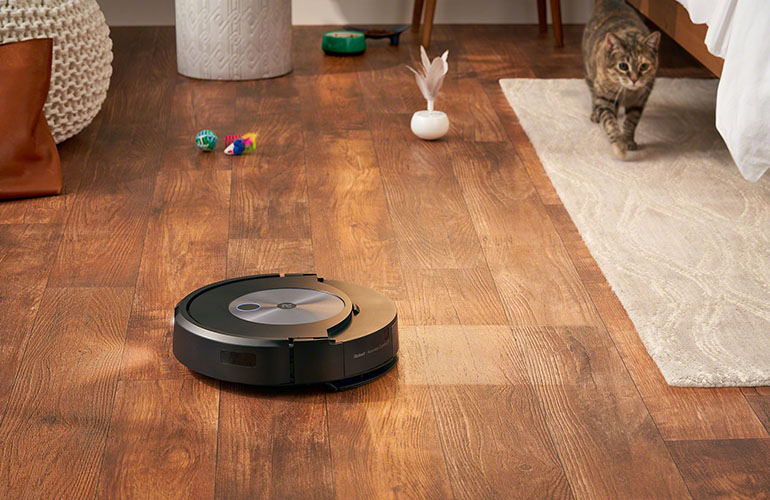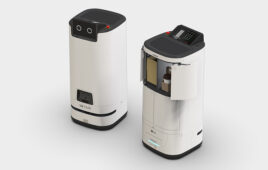|
Listen to this article
|

iRobot’s Roomba Combo j7+. | Source: iRobot
Despite the UK Competition and Markets Authority (CMA) clearing Amazon’s $1.7 billion pending acquisition of iRobot just last week, the European Union (EU) seems ready to open a full-scale anti-trust investigation into the deal, according to Reuters.
On July 6, according to Reuters, the EU will start a four-month investigation at the end of its preliminary review of the acquisition. While Amazon still has a chance to convince the European Commission that the deal wouldn’t interfere with antitrust laws, sources told Reuters the odds against that are high.
Amazon first announced its plans to purchase iRobot in August 2022. The deal was quickly put on hold in September 2022, when the Federal Trade Commission (FTC) officially started an antitrust investigation into the deal.
While Amazon hasn’t commented much publicly on the FTC or EU investigations, it did previously highlight the size of the robot vacuum cleaner market, and the fact that much of its competition comes from Chinese players.
The CMA and EU don’t always see eye-to-eye on antitrust laws. For example, the CMA previously blocked Microsoft’s $69.7 billion acquisition of Activision, while the European Commission cleared the deal as long as Microsoft agreed to license deals with rival streaming platforms.
Gaining CMA approval
The CMA’s investigation was centered around three concerns about the acquisition. The first was that Amazon’s acquisition of iRobot would result in a significant loss of competition in the robot vacuum cleaner market, as Amazon could potentially compete as a supplier. However, because of iRobot’s modest market position in the UK, and its significant rivals that already exist, the CMA decided that the potential loss of competition wouldn’t be substantial enough to greatly impact market outcomes.
The CMA’s next concern was that Amazon could use its online store to disadvantage iRobot’s rivals after the merger. During its investigation, the CMA found that while this would be possible, Amazon doesn’t have much of an incentive to throttle its robot vacuum competition. This is because of how small the robot vacuum cleaner market is in the UK and the fact that it is not likely to significantly grow in the future. This means Amazon would likely lose revenue from sales commissions and reduced advertising if it tried to hinder its competition.
Finally, the CMA was concerned that robot vacuum cleaners could be an important aspect of “smart home” platforms, like Amazon’s Alexa, and so Amazon’s smart home rivals could be disadvantaged because of the merger. The CMA also found this likely wouldn’t be an issue because robot vacuum cleaners, and the data they gather, are typically not important inputs for smart home devices. Additionally, there are other robot vacuum makers whose vacuums have similar capabilities’ to iRobot’s Roombas, so those other vacuum makers could be part of a rival smart home system.
“More people are choosing to use ‘smart’ tech in their homes – whether that’s listening to the radio through a smart speaker, answering the door using a video doorbell, or keeping floors clean with robot vacuum cleaners,” Colin Raftery, senior director of mergers at the CMA, said. That’s why it’s important to ensure tech firms that already benefit from powerful positions aren’t able to use those positions to undermine competitors at the expense of UK consumers and businesses. Here, after a thorough investigation, we’re satisfied that the deal would have no impact on competition in the UK.”
While Amazon has approval for the acquisition in the UK, its investigations with the FTC and EU are ongoing, and it could be months before regulators reach a conclusion on whether the deal can move forward.






Tell Us What You Think!